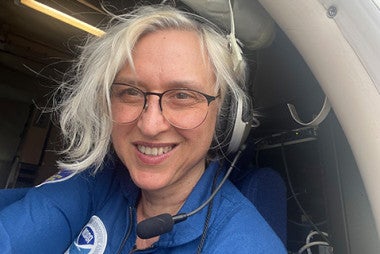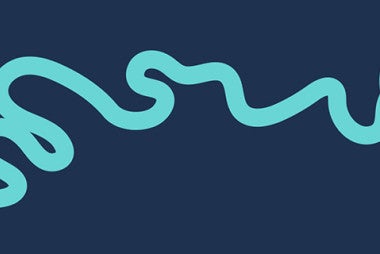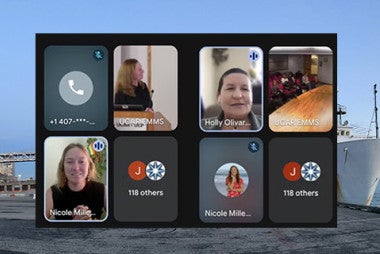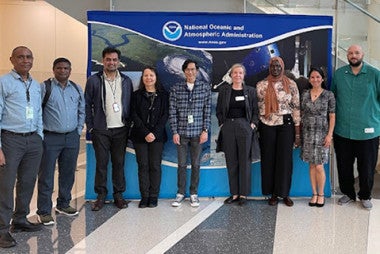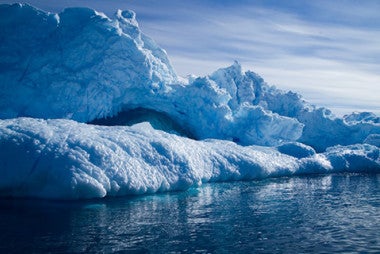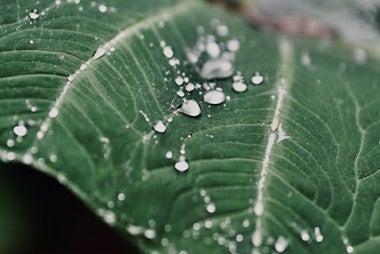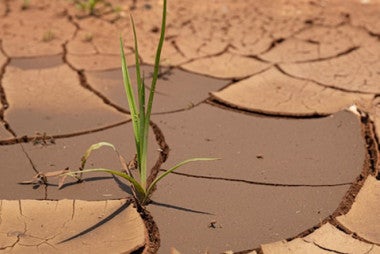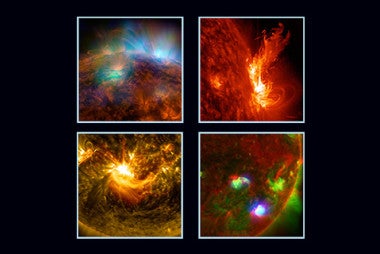New CPAESS Scientist Joins the GOMO Team
CPAESS is delighted to have a strong team of scientific staff working out of NOAA’s Global Ocean Monitoring and Observing Office (GOMO) including GOMO Manager, Kathy Tedesco; and Program Specialists David Allen, Cheyenne Stienbarger, and Ann-Christine Zinkann. We are excited to welcome and introduce you to this team’s newest member Alyse Larkin who will also serve as a Program Specialist.
Alyse’s Ph.D. is in Marine Science and Conservation from Duke University. She then spent 6 years working in the Department of Earth System Science at the University of California, Irvine on global microbial genomics and connecting microorganisms to ecosystem processes.
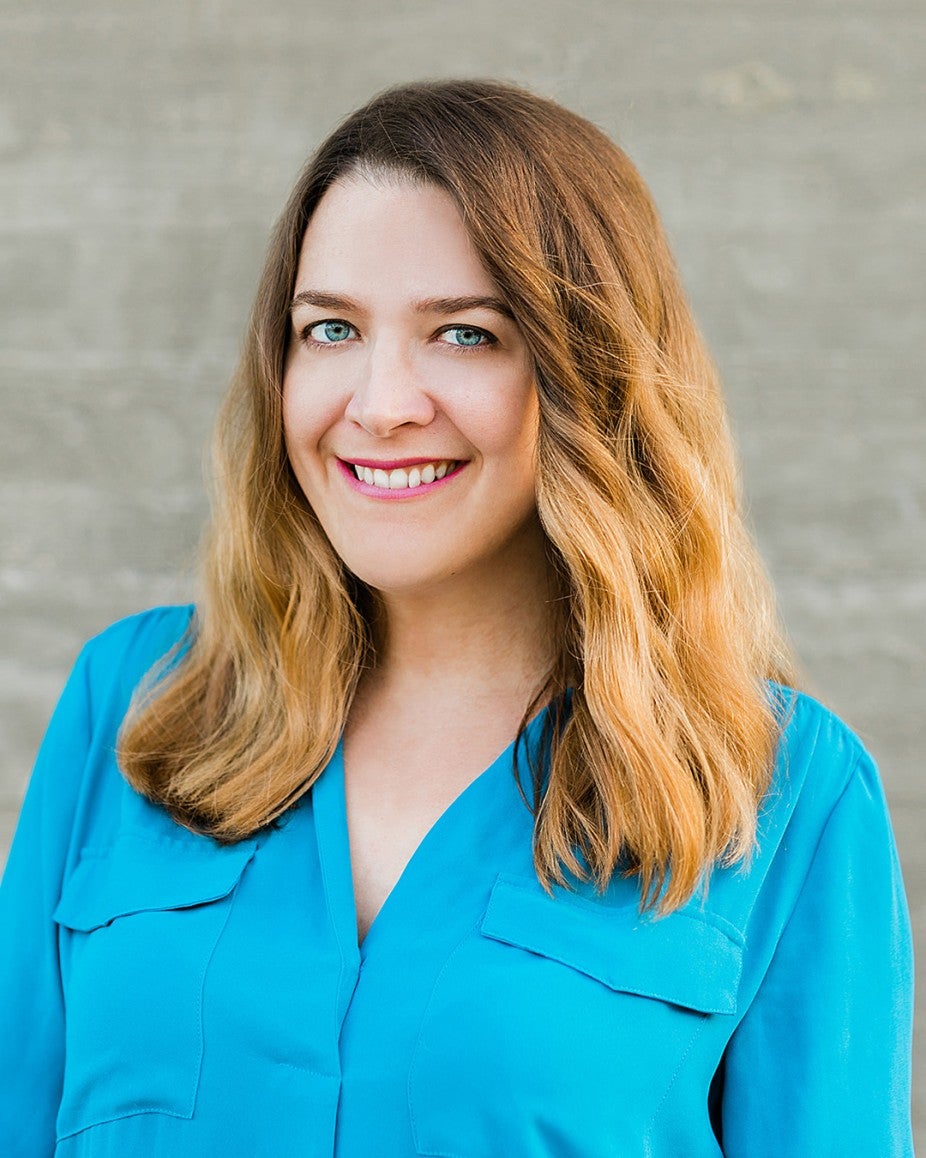
Dr. Alyse Larkin-Swartout has recently joined the CPAESS team working at NOAA's Global Ocean Monitoring & Observation team.
As a CPAESS scientist, Alyse will be working with Kathy Tedesco on ocean carbon cycle measurements, as well as the marine carbon dioxide removal program. Of the latter, this work includes a spectrum of geoengineering possibilities from seaweed cultivation, to wetland restoration, and calcium carbonate ocean floor seeding as possible efforts to absorb more carbon dioxide from the atmosphere and contribute to the reduction of greenhouse gases.
Larkin is also working with NOAA’s GO-SHIP (Global Ocean Ship-Based Hydrographic Investigations) Program to expand their biological measurements. The GO-SHIP program conducts ship-based hydrography for the purpose of “obtaining high-quality, high spatial and vertical resolution measurements of a suite of physical, chemical, and biological parameters over the full water column. Ship-based hydrography is essential for documenting ocean changes throughout the water column, especially for the deep ocean below 2 km (52% of global ocean volume not sampled by profiling floats). Global hydrographic surveys have been carried out approximately every decade since the 1970s” (source NOAA). Essentially the ships methodically measure many aspects of the ocean slice by slice, and Alyse will help support a new biological pilot program, Bio-GO-SHIP. Bio-GO-SHIP scientists will be examining imaging data to count plankton, chlorophyll measurements, the organic chemistry of marine particles, and environmental DNA (e-DNA) to name some of the types of new data that will be collected.
Lastly, Alyse will be working on the Global Sea Level Observing System (GLOSS) program which is an international effort to install high quality tide gauges in the world’s oceans to measure sea level rise. “GLOSS was established by the UNESCO Intergovernmental Oceanographic Commission (IOC) in 1985 and it is currently formed by over 90 nations across the globe…Tide gauge observations provide information on a wide spectrum of oceanographic processes, ranging from surface and internal tides to surface currents and ocean eddies. In situ observations of sea level are also needed to monitor and understand global sea level rise, as well as interannual to decadal sea level variations, which provide insight into ocean circulation changes on climate time scales. In addition, sea level observations are used to examine extreme events associated with tsunamis, storm surges, and other factors leading to short-term coastal inundation (source NOAA).”
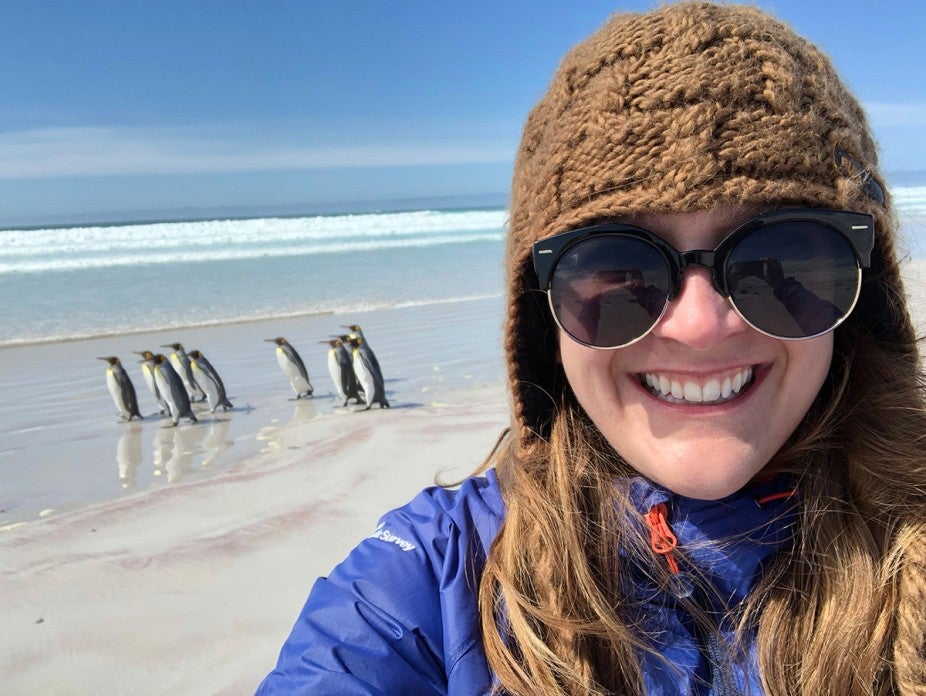
Alyse with penguins while researching in the Galapagos
Alyse explained that they are working to install these tide gauges in not only in “highly informative locations but in communities throughout the global south and the tropical Pacific to ensure that we are helping to provide these stations in countries that might not have the resources to install them themselves.” These gauges have GPS coordinates to validate the sea level rise in conjunction with landmarks, which also rise and fall due to geological processes. This data is also used to calibrate satellite imagery as well, to get the best quality information from all the tools employed.
In addition to her ocean carbon, ocean biological research, and sea level rise work through CPAESS at GOMO, Alyse is the Executive Director of Scientific Research and Education Network (SCIREN), a non-profit she helped found as a graduate student. Its mission is “to connect local STEM researchers and educators to foster the dissemination of current research and ultimately enhance the science literacy of today’s youth” (source SCIREN). They create curriculum material to bring current research and researchers into communities and classrooms.
Dr. Larkin, we are genuinely happy to welcome a scientist with your expertise, both professionally and in terms of sharing science with students, to our team. We are delighted to have you onboard.
